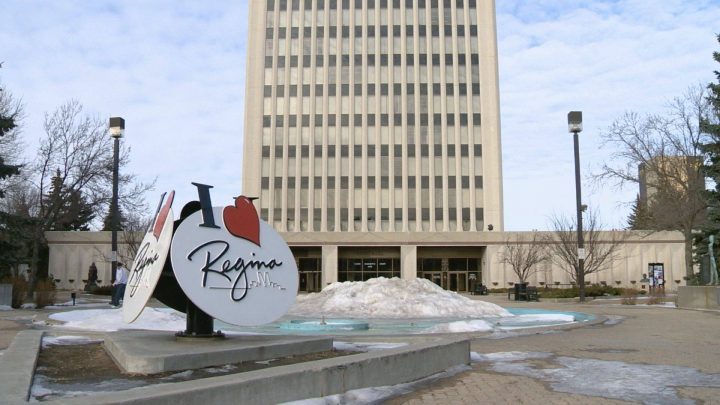The City of Regina has declared a local state of emergency which has allowed the city to force the closure of non-essential services.

The new measures went into effect Friday evening and will be in place for seven days to prevent the spread of COVID-19.
All restaurants, bars and nightclubs – except to provide takeout or delivery – are now closed.
Group meetings that are larger than five people are strictly prohibited. This applies to any gatherings in the “public domain” or any public areas. Places like work, office buildings, homes and essential services are exempt.
Dental offices are also closed under the order unless they need to provide emergency services.
Additionally, starting on Monday, all retail stores will be closed for in-person shopping. This includes any stores providing clothing, shoes, sporting, furniture, toys, crafts and gaming. However, retailers will be allowed to provide delivery or curbside service.
Grocery stores, pharmacies and gas stations are exempt from the above order. Liquor stores also remain open because they have not been listed in the order.

Since elements of the city’s order goes against the government of Saskatchewan’s order, which limits gatherings to 25 people, it serves as a recommendation.
The mayor says he has spoken with Premier Scott Moe and other government officials about the idea of focusing on speed, not perfection.

Regina Transit free to ride

Get weekly health news
Starting Monday, Regina Transit will be changing their hours.
The bus service is reporting that 31 staff members have been affected or are forced to stay home as a result of precautions due to the outbreak.
Regina Transit will operate on a Saturday schedule on a full-time basis, with the exception of Sunday service.
The Saturday service bus schedule covers most of the city. The routes will reach major destinations including hospitals, commercial areas and places of employment.
However, this will result in the reduction of buses which will now arrive every 30 minutes from Monday through Friday. Route 40 Albert Express and 60 Arcola Express will continue to run on the weekdays.
Additionally, Saturday service will be replaced with Sunday service. Sunday and holiday service remains the same.
Transit Regina has seen a 60 per cent drop is ridership says the city of Regina. Weekday ridership went from 26,000 rides per weekday to 10,000 per weekday.
Customers are asked to enter and exit buses through the rear doors to allow distance between the driver and riders.
The front door will be limited to those who need accessibility.
The bus is now free to ride including paratransit services.
Food Security Committee established
A lunch program for children who relied on school programs is expected to be established by Wednesday, March 25.
The program, spearheaded by REACH Regina and the city, would assemble 750 lunch bags a day, 7 days a week, that would be distributed at city facilities.
The program would cost $12,500 a week, although exact funding sources have yet to be cemented.
A phone line for residents who need access to food will also be set up.
Municipal tax deadline pushed back; late fees suspended
City administration also recommended pushing back the deadline for paying 2020 taxes from June 30, to Sept. 30, 2020, as well as ensuring no new late fees are added to city utility bills after March 20, through until September 30.

The city has also proposed suspending enforcement on the 24-hour limit on residential parking to encourage residents to stay indoors.
City Administration is expected to bring forth an implementation plan for the order as soon as possible.
Questions about COVID-19? Here are some things you need to know:
Health officials say the risk is low for Canadians but warn this could change quickly. They caution against all international travel. Returning travellers are asked to self-isolate for 14 days in case they develop symptoms and to prevent spreading the virus to others.
Symptoms can include fever, cough and difficulty breathing — very similar to a cold or flu. Some people can develop a more severe illness. People most at risk of this include older adults and people with severe chronic medical conditions like heart, lung or kidney disease. If you develop symptoms, contact public health authorities.
To prevent the virus from spreading, experts recommend frequent handwashing and coughing into your sleeve. And if you get sick, stay at home.
For full COVID-19 coverage from Global News, click here.












Comments
Want to discuss? Please read our Commenting Policy first.